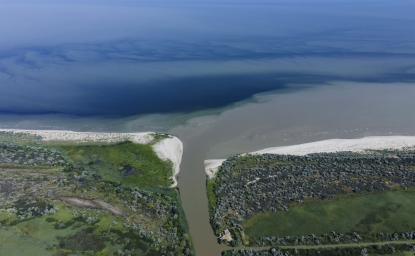ECSP Launches Policy Brief Series on Water Conflict, Cooperation
AUGUST 2006—Navigating Peace Initiative Expands Publications, Website for World Water Week
AUGUST 2006—Navigating Peace Initiative Expands Publications, Website for World Water Week
Rivalries over water have been the source of disputes since humans settled down to cultivate food. But while users within a nation often fight over water, no nations have gone to war specifically over water resources for thousands of years. International water disputes are resolved peacefully, even as conflicts erupt over other issues.
Warnings of coming "water wars" have diverted attention from the benefits that can flow from the world's transboundary river basins. By coming together to jointly manage their shared water resources, countries can build trust and help prevent conflict.
To bring these little-known opportunities to a wider audience, the Environmental Change and Security Program's Navigating Peace initiative has designed a series of short policy-friendly briefs that examines how water can contribute to cooperation between states, while addressing water's role in conflict within states. The briefs offer policy recommendations for using water resources management to head off conflict and to support sustainable peace among countries.Released in time for the annual World Water Week meetings in Stockholm, Sweden, the first and second policy briefs, "Water Can Be a Pathway to Peace, Not War" and "The Challenges of Groundwater in
Southern Africa" will be distributed to water stakeholders, policymakers, and activists.
Three more briefs will be published on:

The Environmental Change and Security Program (ECSP) explores the connections between environmental change, health, and population dynamics and their links to conflict, human insecurity, and foreign policy. Read more



